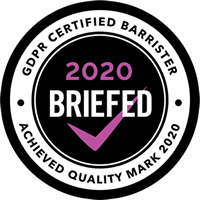![FAILURE TO PAY DIVIDENDS HELD TO BE UNFAIRLY PREJUDICIAL: ROUTLEDGE V SKERRITT [2019] EWHC 573 (CH)](https://erskinechambers.com/app/uploads/2018/03/London-1024x683.jpg)
Case Note: Secretary of State for Business, Energy and Industrial Strategy v Adam and ors [2022] EWHC 922 (Ch)
22nd April 2022
In Secretary of State for Business, Energy and Industrial Strategy v Adam and ors [2022] EWHC 922 (Ch), the Court made a novel case management order in high profile director disqualification proceedings arising out of the collapse of Carillion plc. Andrew Thompson QC and Philip Morrison acted for the successful Fourth to Eighth Defendants in their application.
Introduction
- Carillion plc, a former FTSE 250 construction and management services company (“Carillion”), entered into compulsory liquidation on 15 January 2018, in what is reputed to be the largest trading insolvency in the UK. In January 2021, the Secretary of State for Business, Energy and Industrial Strategy (the “Secretary of State”) commenced proceedings seeking to disqualify certain of Carillion’s former directors under section 6 of the Company Directors Disqualification Act 1986. The case is listed for trial over 25 weeks in 2023-24.
The Application
- An application was brought by the Fourth to Eighth Defendants, each of whom was formerly a non-executive director of Carillion prior to its collapse (the “NEDs”). The NEDs sought an order from the Court requiring the Secretary of State to clarify and confirm the case being brought against them (the “Application”).
- The Secretary of State’s case in the main disqualification proceedings against the NEDs is advanced in two ways:
- First, under the “NED Allegation”, the NEDs are said to “bear responsibility” for the alleged unfit conduct of Carillion’s executive directors which is said to have resulted in (amongst other things) a misstatement of profits in certain of Carillion’s financial statements (paragraph 5 of the Judgment). By the time of the hearing, as recorded at paragraph 44 of the Judgment, the scope of the NED Allegation was almost entirely agreed.
- Second, under the “Direct Allegations”, it is alleged that the NEDs caused Carillion to take certain steps in circumstances where they ought to have known that such steps were inappropriate (paragraph 6 of the Judgment).
- The Application was driven primarily by a lack of clarity in the Direct Allegations. As recorded in the Judgment:
- It initially appeared that the Direct Allegations were being advanced on the basis of an alleged breach of duty (paragraph 7 – 9 of the Judgment);
- However, in later correspondence, the Secretary of State confirmed that the Direct Allegations were not allegations of breach of duty (paragraph 10 of the Judgment).
- In these circumstances, and where the Secretary of State appeared to be advancing the Direct Allegations as separate and independent allegations of misconduct, the NEDs could not understand on the basis of which conduct they were alleged to be unfit, and by what standard that conduct was to be judged (paragraph 11 of the Judgment).
- The NEDs sought an order restricting the Secretary of State to a case set out (fully and finally) in a schedule to the Court’s order, or else an order requiring the Secretary of State to serve particulars of his case as though it had been commenced under Part 7 of the Civil Procedure Rules. As the Judge recognised, the NEDs’ application was designed to obtain (i) clarity as to the case being advanced against the them, and (ii) certainty that (once that case had been identified) it would be the only case advanced against them at trial (paragraph 13 of the Judgment).
The Court’s Judgment
- The Court agreed that there were issues with how the Secretary of State’s case on the Direct Allegations was being advanced. In particular:
- The Court found the assertion that an alleged breach of duty did not form the basis of the Direct Allegations “confusing and inconsistent” given the way the Secretary of State had initially presented his case (paragraph 17).
- Absent an allegation of breach of duty, it was not clear what the content of the Direct Allegations was intended to be. As Joanna Smith J observed at paragraph 17 of the Judgment: “If the Claimant does not rely on any breach of duty for his stand-alone case based on the Direct Allegations, what is the basis for the allegation that the NEDs ‘ought to have known’? What standard of conduct is being applied?”
- Joanna Smith J accepted that “more clarity is required as to the way in which the Claimant intends to advance his case against the NEDs on the Direct Allegations at trial” (paragraph 22) and that “the [Secretary of State] is not exempt from the rules that govern civil litigants” (paragraph 23). She returned to this at paragraph 43, noting that there was “a genuine lack of clarity” around the Direct Allegations.
- Against the backdrop of these findings, the Court made a novel case management order pursuant to CPR rule 3.1(2)(m) requiring the Secretary of State to particularise his case on the Direct Allegations in an appropriate form. As set out at paragraph 40 of the Judgment, such particular were to include:
- The conduct upon which the Secretary of State relies in seeking to establish that the NEDs were unfit; and
- The facts on which he intends to rely in asserting that such conduct amounts to unfit conduct. This is to include (a) the facts on which the Claimant will rely in support of his ‘ought to have known’ case, and (b) the standard against which the Claimant will allege at trial that the NEDs’ conduct must be judged.
- The Court also ordered that this case (as particularised), along with the clarified and agreed formulation of the NED Allegation, would be added into a Schedule to the Court’s order, and would thereafter stand as the Claimant’s case of unfitness at trial.
- This decision demonstrates the wide-ranging case management powers enjoyed by the Court under CPR rule 3.1(2)(m), and the robust approach the Courts can take to remedy the risk of procedural unfairness and ensure the efficient resolution of complex litigation. In particular, it exemplifies the Court taking a pro-active approach to the case management of large scale director disqualification proceedings following the serious criticisms levied at the Official Receiver by Falk J in Re Keeping Kids Company [2021] EWHC 175 (Ch).
Andrew Thompson QC, Ben Shaw and Philip Morrison act for the Fourth to Eighth Defendants
James Potts QC and Andrew Blake act for the Third Defendant



